Why Christian Aid Ireland?
How our faith drives our values and approach.

Christian Aid Ireland works in some of the poorest countries in the world to tackle the causes and consequences of poverty and injustice. We are key part of ACT Alliance, the worldwide ecumenical network for emergency relief.
Christian Aid Ireland: NI charity no. NIC101631 Company no. NI059154 and ROI charity no. 20014162 Company no. 426928. The Christian Aid name and logo are trademarks of Christian Aid.
Foreword
It is good to be reminded of the significance of our organisation’s name. Christian Aid’s values so evidently come from our Christian foundations – called by Christ to love our neighbour we commit to work for justice, equality, dignity, integrity and love.
It is our ongoing privilege in Ireland to work closely with our sponsoring churches and with a whole host of church supporters in a range of different denominations. Whatever our differing theological emphases might be, we recognise that we are “all one in Christ Jesus” – and that is especially evident when engaging together on behalf of the most marginalised in our world.
In Christian Aid Ireland we talk about the 4 Ps - we aim to address the causes of Poverty – so we look to see how structures can be changed and Power bases challenged in order to be fair to all. We believe in the power of the Prophetic voice amplifying the voices of those with whom we work even as we advocate within Ireland for both governments and people to “act justly, do mercy and walk humbly” with regard to their global neighbours. We always work in Partnership with others - globally with whoever is best placed to reach those in greatest need. And here in Ireland our partnerships include you – the churches, volunteers, and supporters who make this work possible.
And I would be tempted to add a fifth – Prayer. We invite our supporters to give, act and pray because we know that prayer has the capacity to bring about change – transforming our hearts and minds through the power of God’s Spirit - as much as those for whom we pray.
Whether or not you are a present supporter of Christian Aid Ireland, I hope ‘Why Christian Aid?’ answers any of the questions you may have about our Christian roots and what that means for us today. And I gladly draw your attention to the invitation at the end which simply says “Will you join us in praying fervently, giving generously and acting courageously for a world where God’s justice rolls down like a river?”
A world we look forward to seeing one day.
Rev Dr Liz Hughes, Chair of Christian Aid Ireland
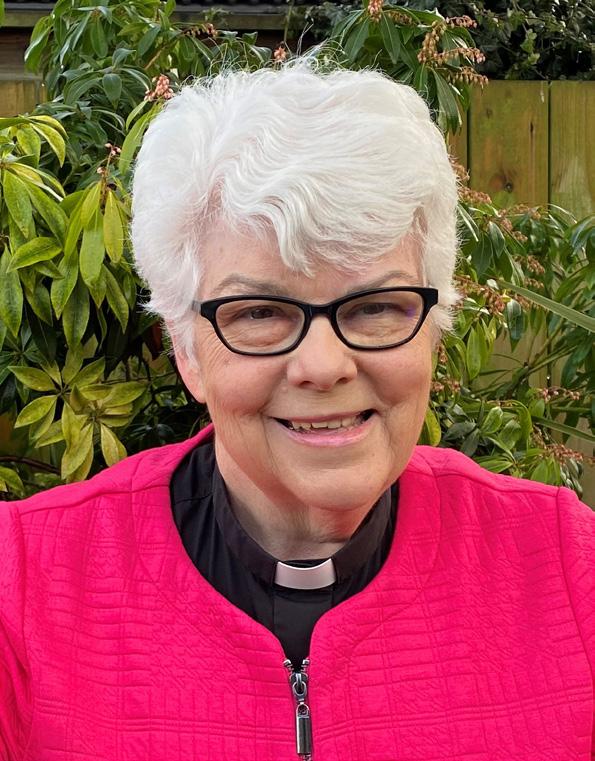
3
Janet Zirugo, from Zimbabwe, displays the variety of grains grown on her family farm. A Christian Aid-led project helped farmers like Janet diversify their crops to include drought resistant grains, so they are better able to withstand extreme weather conditions made worse by the climate crisis.
(David Brazier / Christian Aid)
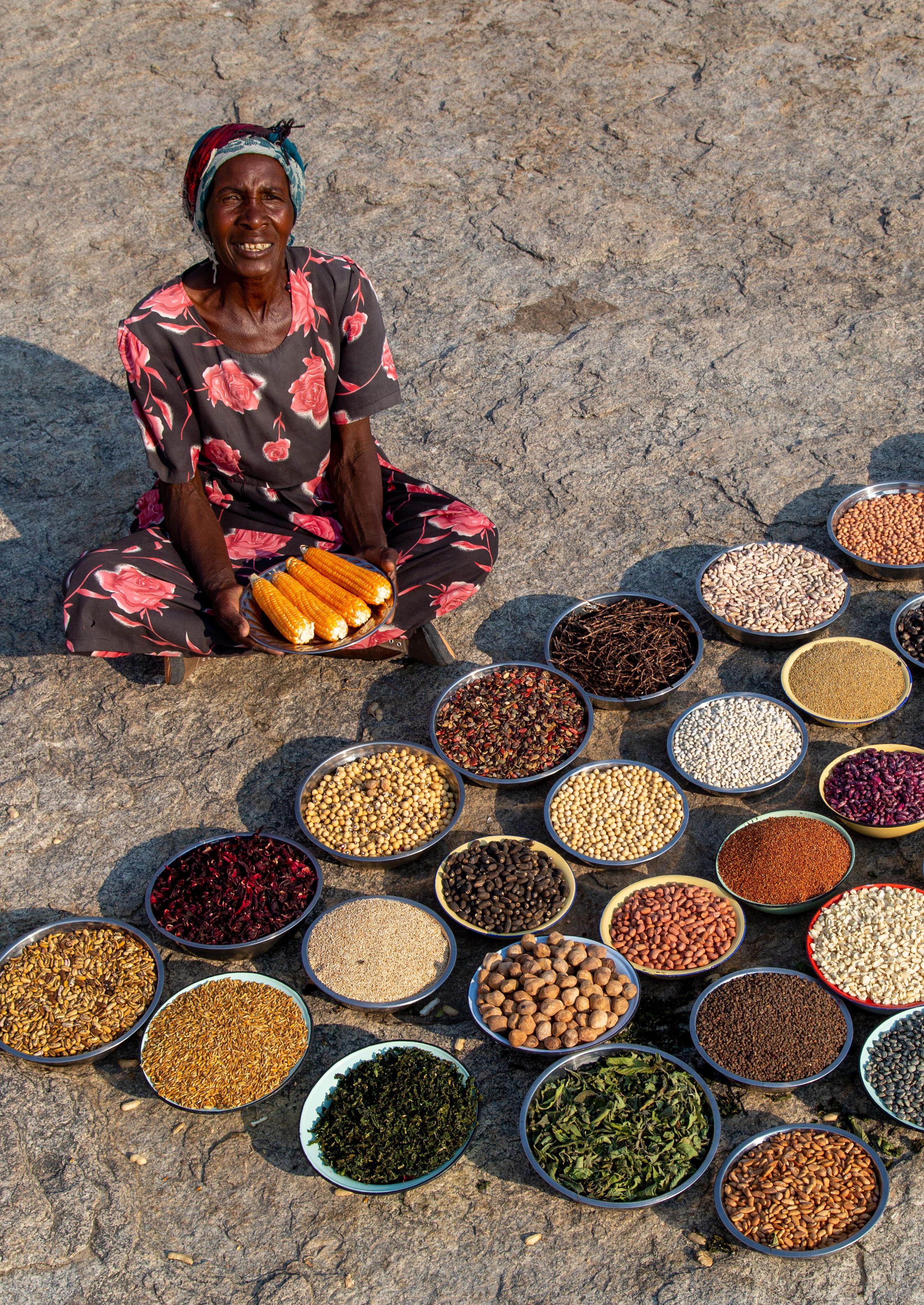
Contents
Foreword ....................................................................................................................
Introduction ...............................................................................................................
Who is Christian Aid Ireland? ...................................................................................
What motivates our work? .......................................................................................
What is distinctive about Christian Aid? .................................................................
How does our Christian faith influence our values? .............................................
Our Approach
United in Hope ..........................................................................................................
5
Join us
A women’s bicycle race in northern Burkina Faso to celebrate International Women’s Day.
(Christian Aid / Amy Sheppey)
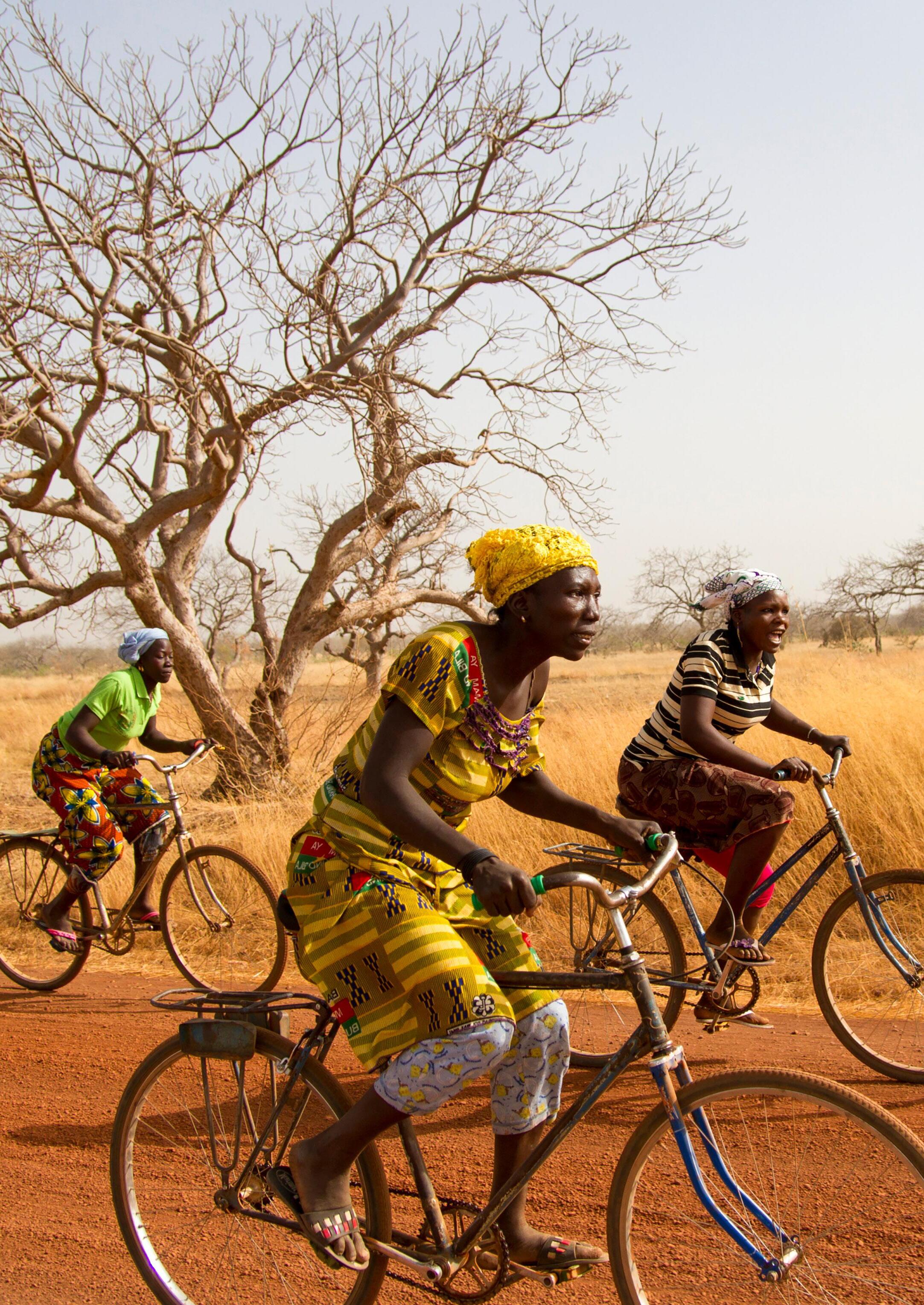
Introduction
Christian Aid Ireland’s strategy for 2022-2026 entitled ‘Stronger Together’ sets out the vision, values and approach that inform our work. The strategy affirms that our work is “driven by our Christian faith”. In this document we set out to explain the biblical and theological rationale that has informed our organisational strategy. We seek to answer the question why does Christian Aid work in a particular way and to explain how our Christian faith informs and underpins everything we do.

7
 Joseph
Joseph
Mutinda
Ndiku, from Kenya, chisels
out a log to carve out a beehive, the honey collected provides a source of income for his family.
(Christian Aid / Felixie Kipngetich)
Who is Christian Aid Ireland?
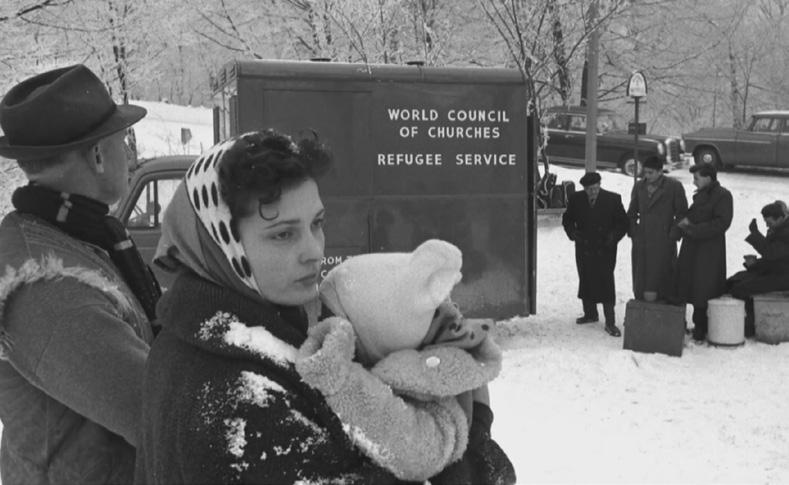
We are an international development agency founded by the Protestant churches of Britain and Ireland with a mandate to “challenge and enable them to fulfil their responsibilities towards the poor of the world”.1
The churches initially founded Christian Aid in 1945 in response to the refugee crisis in Europe at the end of the Second World War. In the decades since, Christian Aid has provided urgent support to millions of people caught up in humanitarian disasters and supported longterm development in over 40 countries. We supported the civil rights movement in the US, demanded an end to apartheid in South Africa, campaigned for the cancellation of developing world debt, helped set up the Fairtrade Foundation and campaigned for action to end tax dodging and avert the climate crisis.
In 2007, Christian Aid Ireland became a separate independent entity with a CEO accountable to a board of trustees consisting of representatives of our sponsoring churches as well as technical experts. We remain connected to the wider Christian Aid family, sharing the same vision and values.
Churches remain our key supporters and our seven sponsoring churches, across the island of Ireland, are: The Presbyterian Church in Ireland, The Church of Ireland, The Methodist Church in Ireland, The Moravian Church, The Non-Subscribing Presbyterian Church, The Religious Society of Friends, and The Salvation Army. We also maintain a close partnership with the Irish Council of Churches.
Christian Aid was established to tackle both the symptoms and root causes of poverty and injustice, challenging the systems and structures that keep people poor, powerless, marginalised and vulnerable. We are an integral agency of the churches, working in partnership with them, however we recognise that we do not represent the totality of the churches’ mission in the world. Christian Aid’s former theology adviser, Paula Clifford, wrote, “the church and the Christian development organisation are complementary. It is the work of the church, and not primarily of a development agency, to help and support its members in learning to love God.” She added: “a Christian development agency is well placed to draw the attention of the church to its global neighbours and the context in which they live, as well as to demonstrate new ways of showing love to those neighbours in need.”2
9
1. To Strengthen the Poor, A statement of commitment adopted by the Board of Christian Aid July 1987. 2.
2. Paula Clifford, Theology and International Development, A Christian Aid report, 2010. 25.
Esther Saizi, a pigeon pea farmer from Malawi, in a church near her home. Esther received support from Christian Aid’s local partner to help improve her harvests and to access a fair price for her produce. Esther said, “every day, the first thing that I do when I wake up is pray, and thank the Lord for protecting me through the night, and then I ask him to be with me with everything I am going to do.
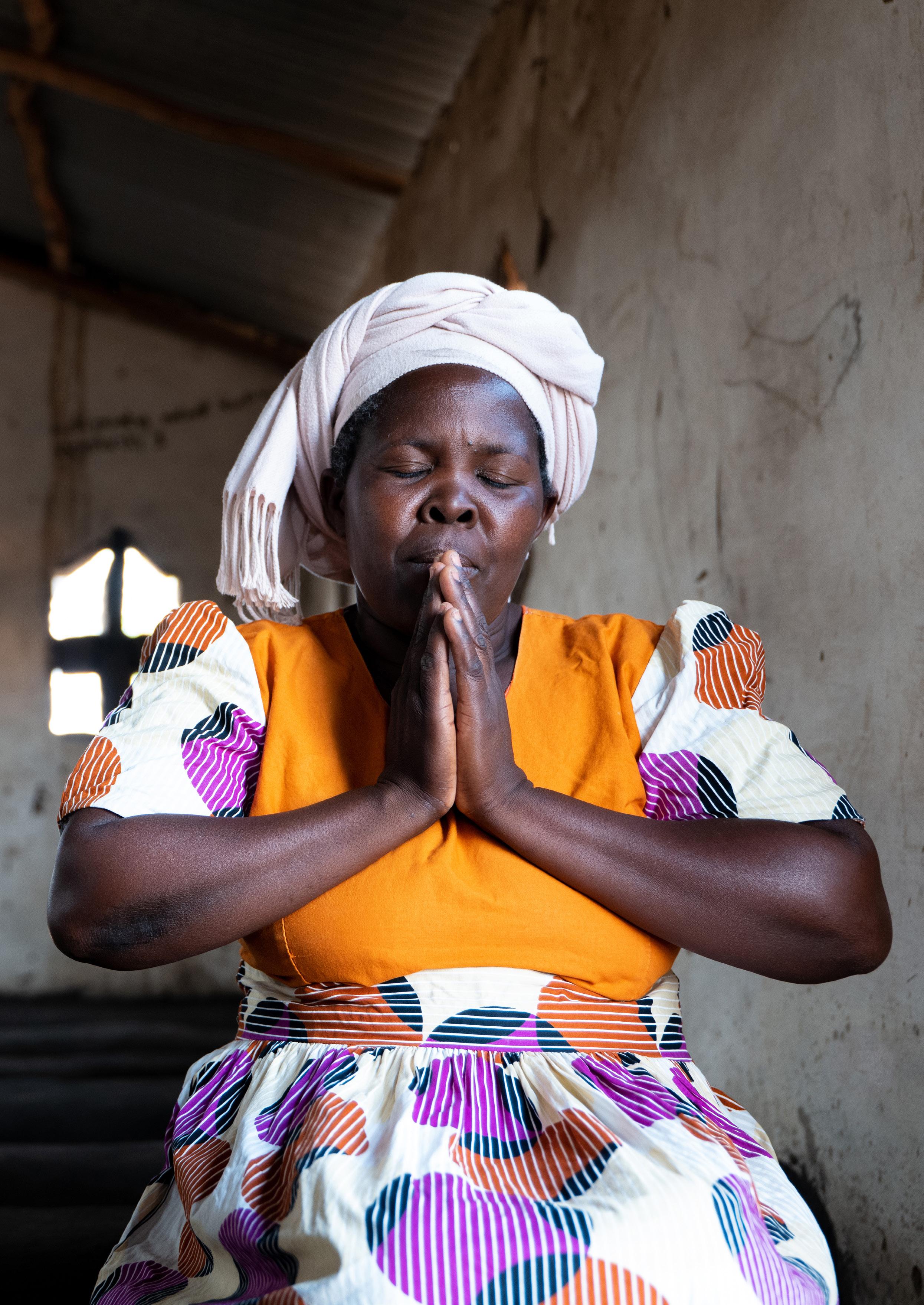 (Christian Aid / Adam Haggerty)
(Christian Aid / Adam Haggerty)
What motivates our work?
Christian Aid Ireland’s work is driven by our Christian faith since we believe that an essential component of what it means to be a disciple of Christ is to work for a world where everyone lives in dignity, free from poverty, injustice, inequality and violence. This understanding of the Christian faith is informed by the following factors:
The death and resurrection of Jesus for us
God, in the person of Jesus, came to rescue a world in need. Recognising that we are the recipients of God’s undeserved grace and favour we are inspired to love others as we have been loved. This response of gratitude inspired the Apostle John to write:
“This is how we know what love is: Jesus Christ laid down his life for us. And we ought to lay down our lives for our brothers and sisters. If anyone has material possessions and sees a brother or sister in need but has no pity on them, how can the love of God be in that person? Dear children, let us not love with words or speech but with actions and in truth.”
(1 John 3:16)
Swiss theologian Karl Barth wrote that “no praise of God is serious, or can be taken seriously, if it is apart from or in addition to the commandment: “Thou shalt love thy neighbour as thyself.”3
Our desire to love our global neighbour in need comes as a response of praise, worship and gratitude to the God who first loved us and who gave himself for us.
We see this same kind of transformation at work within Zacchaeus who, as chief tax collector, had been part of the oppressive system that impoverished people in his own community. However, as Jesus reaches out to him in love Zacchaeus’ heart is transformed. He responds to Jesus saying “if I have cheated anybody out of anything, I will pay back four times the amount” (Luke 19:8). In response to a personal encounter with Jesus, Zacchaeus recognises his own responsibility for the plight of those in poverty who through his sins of greed and selfishness have been cheated out of their money. Zacchaeus’ repentance is evident in his commitment to make restitution for the injustice he has inflicted on others. Jesus comments that “today salvation has come to this house…” (Luke 19:9).
As it did for Zacchaeus, a personal encounter with Jesus leads to repentance where love has been lacking and to a renewed commitment to love our neighbour as ourselves. Mario Aguilar says that “a Christian outlook of empathy and concern for the poor within society is the fruit of a person’s deep relationship with Christ”.4
11
3. Cited in Paula Clifford, Theology and International Development, 13.
4. Mario Aguilar, Genuine Concern for the Poor: Basis for Evangelization in Africa, 1999. 3.
The character of God revealed in scripture
The Bible portrays a God who is active in his world, who intervenes in history and who hears the cry of those who are oppressed and marginalised. Paula Clifford writes that the Christian impulse to tackle injustice “stems from a certain conviction as to the nature of God himself as a God of justice”.
From the beginning God sees and is grieved by the injustice done on the Earth. The first recorded act of violence takes place when Cain kills his brother Abel, and God tells Cain, “your brother’s blood cries out to me from the ground” (Gen 4:10).
When Sarai and Abram mistreat their slave Hagar forcing her to flee, the Lord sends an angel to visit her and bless her with the promise of a son. Hagar calls God “the One who sees me” (Gen 16:13)
When God speaks to Moses from the burning bush it is to tell him that “I have indeed seen the misery of my people in Egypt. I have heard them crying out because of their slave drivers, and I am concerned about their suffering” (Exod 3:7).
In God’s dealings with his people throughout scripture we consistently encounter a God who is grieved by injustice, who hears the cry of the oppressed and who calls his people to join him in working for justice and caring for those who are vulnerable. The prophet Micah writes “what does the Lord require of you, but to do justice, and to love kindness and to walk humbly with your God?” (Micah 6:8)
Psalm 68 affirms that the nature of God is to care for those who are most vulnerable in society, the Psalmist writes that “a father to the fatherless, a defender of widows, is God in his holy dwelling” (Psalm 68:5).
In the laws given to Moses, for the Israelite people, God includes provisions that would ensure the protection of those most vulnerable in society and that would prevent economic inequalities from becoming entrenched.
For example, the laws regarding gleaning (Lev 19:9-10) instruct farmers to leave the margins of their fields unharvested and to not be overly thorough in collecting the harvest, so that those in need in the land can find food. This provision of the right to the gleanings of the harvest is extended not only to the poor of Israel, but also to the foreigner (Lev 19:10).
The book of Ruth gives us a model of the exemplary application of these laws when Boaz not only permits a foreigner, Ruth, to glean in his fields, but actively encourages her to stay and provides protection, food, water and instructs his men to leave additional crops in the field for her (Ruth 2:8-16). Boaz is celebrated for going beyond the just provisions of the law by proactively demonstrating mercy and generosity to Ruth.
God also gave the people of Israel instructions for every 50th year to mark the Year of Jubilee, when all land must be returned to its ancestral owners. The justification being that God says “the land must not be sold permanently, because the land is mine” (Lev 25:23)
12
The instructions regarding Jubilee also include rules against unfair practices such as overpricing and profiteering from money lending to the poor. The Israelites are told “do not take advantage of each other, but fear your God” (Lev 25:17)
It is not clear whether these Jubilee laws were ever fully put into practice, but Deuteronomy 15:4 tells us that “there need not be any poor people among you…” suggesting that if these laws had been followed correctly poverty could have been eradicated and that this would be God’s good intention for his world. However, the text is also realistic about human nature and recognises that there will be those living in poverty in the land. Therefore, God commands a response of generosity from his people to “be openhanded and freely lend them whatever they need” (Deut 15:8)
As Dietrich Bonhoeffer explained, “To allow the hungry [man] to remain hungry would be blasphemy against God and one’s neighbour, for what is nearest to God is precisely the need of one’s neighbour.”5

13
5. Dietrich Bonhoeffer, Ethics, 1949.
The witness of the prophets
Despite the revealed character of a God of justice and the laws put in place to prevent inequality and to ensure the marginalised and vulnerable were cared for, God’s people throughout history, to the current day, have failed to live up to God’s just requirements. Therefore, scripture records the proclamations of a host of prophets sent with a message from God to call his people back into line with God’s will for his world. Often the prophets challenged the people to remember those most vulnerable in society and to return to living according to God’s law.

Gustavo Gutiérrez writes that: “The prophets condemn every kind of abuse, every form of keeping the poor in poverty or of creating new poor…it is not simply a matter of denouncing poverty. The Bible speaks of positive and concrete measures to prevent poverty from becoming established among the People of God.”6
One aspect of the prophet Isaiah’s message to the people of Israel was that God did not want to receive worship and religious ceremonies that were divorced from the demands of just relationships with others and especially the poor and marginalised. Isaiah 58:6-8 outlines the kind of religious observance that God is looking for from his people. “Is not this the kind of fasting I have chosen: to loose the chains of injustice and untie the cords of the yoke, to set the oppressed free and break every yoke? Is it not to share your food with the hungry and to provide the poor wanderer with shelter – when you see the naked, to clothe them, and not to turn away from your own flesh and blood?”
6. Gustavo Gutiérrez, A Theology of Liberation, 1971.
The example and teachings of Jesus
The gospels tell us not only of the coming of Jesus, but also of his complete identity with the human condition, in particular his solidarity with the vulnerable, the marginalised and with those who suffer injustice. In the words of the Apostle Paul, “He emptied himself taking the form of a slave” (Phil 2:7). That solidarity is also reflected in Jesus’ unambiguous command to care for those who are sick, hungry or thirsty, the strangers and the prisoners, because, “just as you did it to one of the least of these… you did it to me” (Matt 25:40)
Jesus himself modelled a radical and counter-cultural solidarity with the poor and marginalised in the way he acted and came alongside those who were marginalised in the society of his day. He defied religious and social convention by speaking with the woman at the well (John 4:4-26), by touching the leper (Matt 8:3), by holding up the poor widow as an example of holiness (Luke 21:1-4), by refusing to condemn the woman caught in adultery (John 8:1-11) and by allowing a ‘sinful’ woman to anoint his feet (Luke 7:36-50).
Mario Aguilar said: “Jesus proclaims a new kind of social order which is manifested by locating those without a home, a family or without enough to eat and placing them at the centre of the proclamation of the good news.”7
Indian theologian Michael Amaladoss powerfully expresses the impact of Jesus’ example of living and his teaching. Amaladoss explains that “Jesus’ good news of the Reign of God projects an alternate vision of community. He proclaims justice and liberation to the poor and the oppressed. He befriends the poor, the outcasts, the sinners, the publicans and the marginalized of his own day. He brings healing and wholeness to the people suffering under physical, psychological and social oppression. By his preaching and miracles he sets himself against the representatives of Mammon8 in his time. He proclaims a new law that privileges poverty and meekness, peace and justice, forgiveness and reconciliation. He gives us a new commandment of love, sharing with us his Father’s love and life. He does not hesitate to lay down his own life as an affirmation of his love, thus actuating the power of reconciliation.”9
Through his teaching Jesus continually pointed towards care for the hungry, the thirsty, the oppressed and the marginalised as being central to God’s will. When asked what the greatest commandment is, he answers that the greatest commandment is to “love the Lord your God” and that the second is like it, “love your neighbour as yourself” (Matt 22:37-39)
In the parable of the Good Samaritan Jesus portrays the Samaritan as the exemplar as he puts love for neighbour into action to help the man in need at the roadside. This shows that the neighbour, whom the greatest commandment bids us to love as ourselves and to take proactive steps to help, is anyone that we see in need, regardless of religion, nationality, race, gender or any other identity. They are first and foremost our neighbour and therefore Jesus calls us to act with love as the Good Samaritan does and to “go and do likewise” (Luke 10:25-37)
15
7. Mario Aguilar, Genuine Concern for the Poor, 7.
8. Mammon from the Aramaic meaning ‘wealth’, representing greed and exploitative economic systems.
9. Michael Amaladoss, Mission in a post-modern world: A call to be counter-cultural, 1996, 74.
Jesus proclaimed the coming of God’s kingdom as bringing about a total reversal of the way the world often measures human worth. In God’s kingdom many who are last will be first, and many who are first will be last (Matt 19:30). Those who wish to be great in this kingdom must be those who serve others. Just as Jesus “did not come to be served, but to serve, and to give his life as a ransom for many” (Matt 20:28)

As disciples of Jesus Christ we are called to follow his example as we stand in solidarity with the poor and marginalised, we seek to obey his teaching in the way we live as part of the alternate community begun by Jesus, proclaiming that the kingdom of heaven is at hand. We treat all people as our neighbour and stand against all forms of discrimination, segregation or racism, but seek to love each person as ourselves.
Jesus himself said that his actions and words reveal the nature and the character of God, as the South African theologian Allan Boesak puts it, “in Jesus God has been revealed. We have seen God in what Jesus had done in this world for the weak, the poor and the needy, the dejected and despised. “Who has seen me,” said Jesus, “has seen the Father.”10
16
10. W. Wessels, Contemplating Allan Boesak’s fascination with preaching “truth to power”, Acta Theologica 37(2):188-206, 2017, 200.
The practice and teaching of the early church
The Acts of the Apostles describes an early Christian community where the radical sharing of possessions is the norm. Luke records in Acts that in the early Christian community “there were no needy persons among them. For from time to time those who owned land or houses sold them, brought money from the sales and put it at the apostles’ feet, and it was distributed to anyone who had need” (Acts 4:34-35).
Caring for those most vulnerable in society was clearly of great importance to the early church. Acts chapter 6 shows that the church was managing a daily distribution of food, which was particularly supporting widows. A conflict had arisen with regard to this distribution, since some felt that their community was being overlooked. The Apostles responded to the complaint by ensuring that this compassionate ministry could continue and be properly managed. With the communities’ support they appointed seven leaders charged specifically with managing the distribution of food to the needy. This demonstrates that ministry to the poor was a crucial aspect of the activity of the early church and that it was taken seriously by the leadership and that it was managed with integrity.
A deep concern for the poor and marginalised is reflected in the teachings of the early church leaders. The Apostle James urged believers to nurture the kind of faith that leads to practical action, such as providing for those without clothes and daily food. He goes on to argue that faith that is not accompanied by action is dead (James 2:15-17). The Apostle Paul organised a collection for poor believers in the Jerusalem church and he encourages other churches, which he founded, to give generously. For example, he writes to the church in Corinth saying “since you excel in everything… see that you also excel in this grace of giving” (2 Cor 8:7). When Peter, James and John agree that Paul should preach the Gospel to the Gentiles their one stipulation was that Paul should continue to remember the poor, and Paul writes that remembering the poor was “the very thing [he] had been eager to do all along” (Gal 2:10).

17
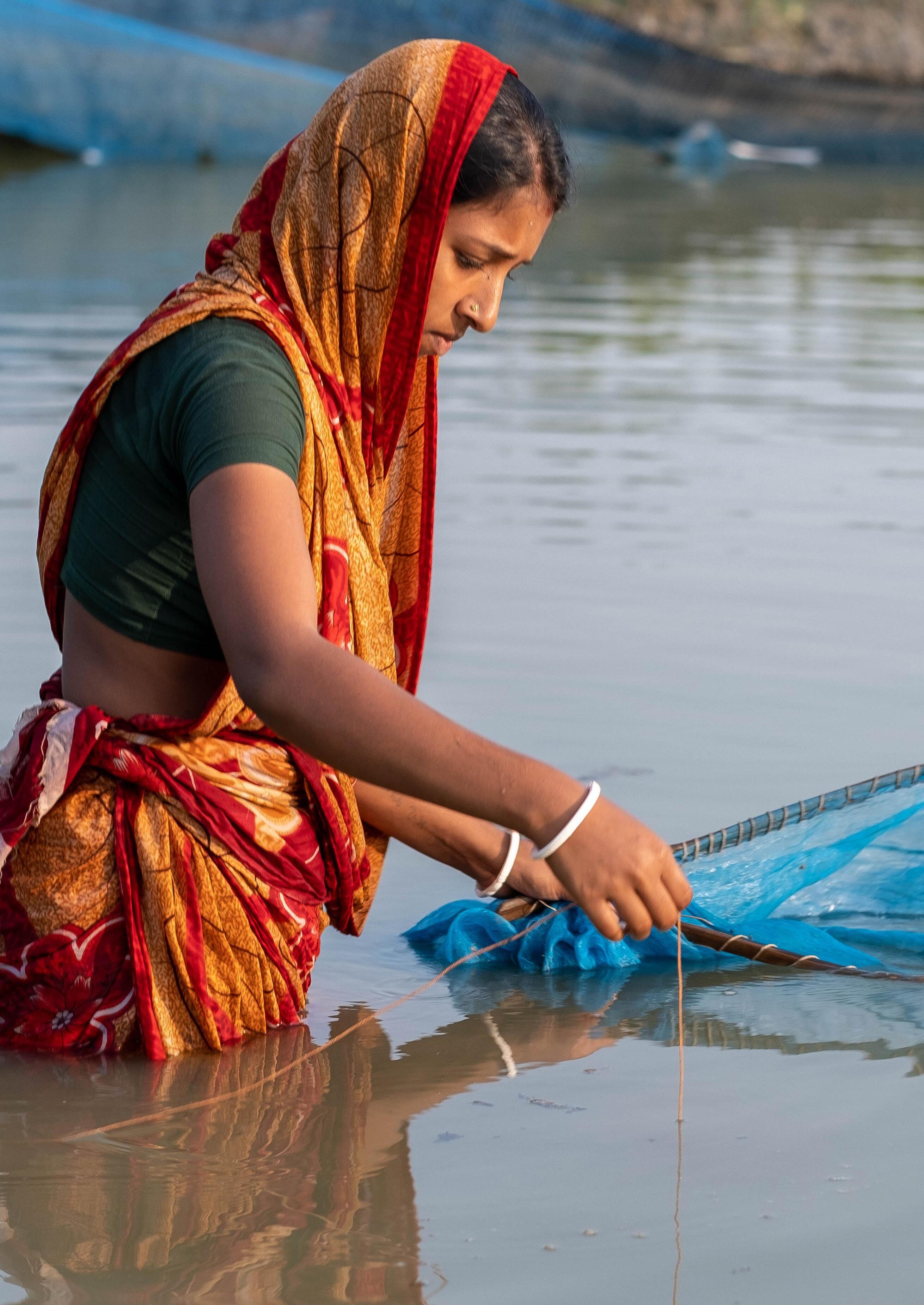 Kokoli Aulia, from Bangladesh, received training in crab farming from Christian Aid’s local partner. She now runs her own crab farm with her husband.
(Christian Aid / Adam Haggerty)
Kokoli Aulia, from Bangladesh, received training in crab farming from Christian Aid’s local partner. She now runs her own crab farm with her husband.
(Christian Aid / Adam Haggerty)
What is distinctive about Christian Aid?
We believe in bringing churches together
Christian Aid was founded by the Council of Churches in Britain and Ireland in 1945. The desire to bring churches and Christians from different backgrounds together to work collaboratively to respond to the challenge of poverty and injustice in our world continues to be a driving force that motivates our approach.
We deliberately choose to work with a wide range of churches in Ireland, including eight sponsoring churches and church bodies, and we enjoy a good working relationship with our colleagues in the Catholic development agency, Trócaire, who are seeking to engage the Catholic church in Ireland in similar ways to our work among the Protestant denominations. Internationally we are members of the ACT Alliance, which is a network of more than 140 churches and Christian ecumenical development agencies working in over 120 countries.
Friendship, mutual respect and collaboration among churches is something that we believe to be God’s will. Jesus prayed that his followers would be one as he and the Father are one (John 17:21). Although the church denominations that support Christian Aid have significant differences in terms of their structure, governance and doctrine, we believe that it can be a powerful witness for those outside the church to see Christians working together on issues where they have a common cause. The call to tackle poverty, injustice, inequality and violence is one such area.
Quoting Matthew’s Gospel, Ghanaian theologian Mercy Amba Oduyoye said of the church; “’By their fruits you shall know them.’ That, for me, is the plumbline for visible unity. If, as churches and as Christians, we bear the fruits of justice, compassion and joy, then the world will know we belong to the one church of Jesus Christ.”11
We work with people of all faiths and none
When Jesus told the parable of the Good Samaritan, he challenged his listeners to break out of a limited view of which neighbours were deserving of their love. The Good Samaritan demonstrates that our neighbour is simply the one we see in need regardless of what faith they practice or whether they practice a faith at all.
19
11. Mercy Amba Oduyoye, The Church of the Future, its mission and theology, Theology Today, Volume 52. Issue 4., 1996, 503.
Christian Aid works through partner organisations based in the countries and communities we are seeking to support. These partners may be churches or church networks, they may be organisations connected to other faiths or they may be secular organisations with no religious affiliation at all. We choose to work through agencies of all faiths and none because if we are to truly love our neighbours as ourselves, as Jesus affirmed, then that means we will want the best quality of support for our neighbours. This is what we would expect for ourselves and for our own families. Therefore, we select partners not by their faith background but on the basis of whether they have the necessary development expertise and are best placed to access and respond effectively to people’s needs and to help them claim their rights. Some of these will be faith-based partners, some will be partners of faith but not officially linked to a church and some will be of no faith.
Christian Aid’s statement of faith adopted on our 50th birthday in 1995 affirmed this approach, saying that “while churches are our natural partners, we will seek common ground and ways to co-operate with people and organisations of all faiths and of none who side with the poor”.
We do not seek to convert those we help
We are an agency of the church with a specific mandate to partner with the church to help tackle injustice, poverty, inequality and violence. We do not reflect the totality of the ministry of the churches. Paula Clifford writes that one misconception about Christian development agencies is that they “exist to make converts out of those in need. This would be neither good development practice nor good evangelism. To approach people with a Bible in one hand and food in the other is to make development aid conditional on accepting Christian belief, and, conversely, risks making faith dependent on material and physical gain.”12 This is not to suggest that there is anything wrong with evangelism, on the contrary, it is core to the churches’ purpose and mission on Earth. However, we believe that Christian Aid plays an important role as a Christian development agency that is able to be clear that it is acting out of a gospel imperative to care for poor and vulnerable people rather than because it discerns an evangelistic opportunity. Christian Aid’s first director, Janet Lacey, wrote in 1961: “We need to convince the world – and ourselves –that Christians care for human beings in need and that they help them because they love them and not in order to make them Christians. There are no conditions attached to true Christian aid. The only criterion is need.”13
However, many of the individual Christians who support Christian Aid Ireland as well as the Christian development workers among our staff and partners see what they do as an outworking of their own personal faith and this acts as a witness to the world that those who follow Christ are deeply committed to care for people in need of all faiths and none.
20
12. Paula Clifford, Theology and International Development, 6.
13. Janet Lacey, Christian Aid, 1961, 31.
Christian Aid believes that in order to be faithful to God’s call to care for the poor and vulnerable we must do more than deal with the symptoms of poverty, such as hunger. We need to also ask deeper questions about why people are hungry in the first place and what can be done to change those structures and systems that prevent people from accessing all that they need to live a full life.
Martin Luther King used the parable of the Good Samaritan to make this point. He said: “We are called to play the Good Samaritan on life’s roadside, but that will only be an initial act… we must come to see that the whole Jericho road must be transformed so that men and women will not be constantly beaten and robbed as they make their journey on life’s highway.”14
God calls his people to “speak up for those who cannot speak for themselves, for the rights of all who are destitute. Speak up and judge fairly; defend the rights of the poor and needy” (Prov 31:8-9).
Christian Aid encourages and equips churches and individual Christians to use the opportunities they have to speak up on behalf of those living in poverty through public campaigning and advocacy aimed at bringing about transformational change to the structural root causes which are exacerbating and entrenching poverty, such as the climate crisis.
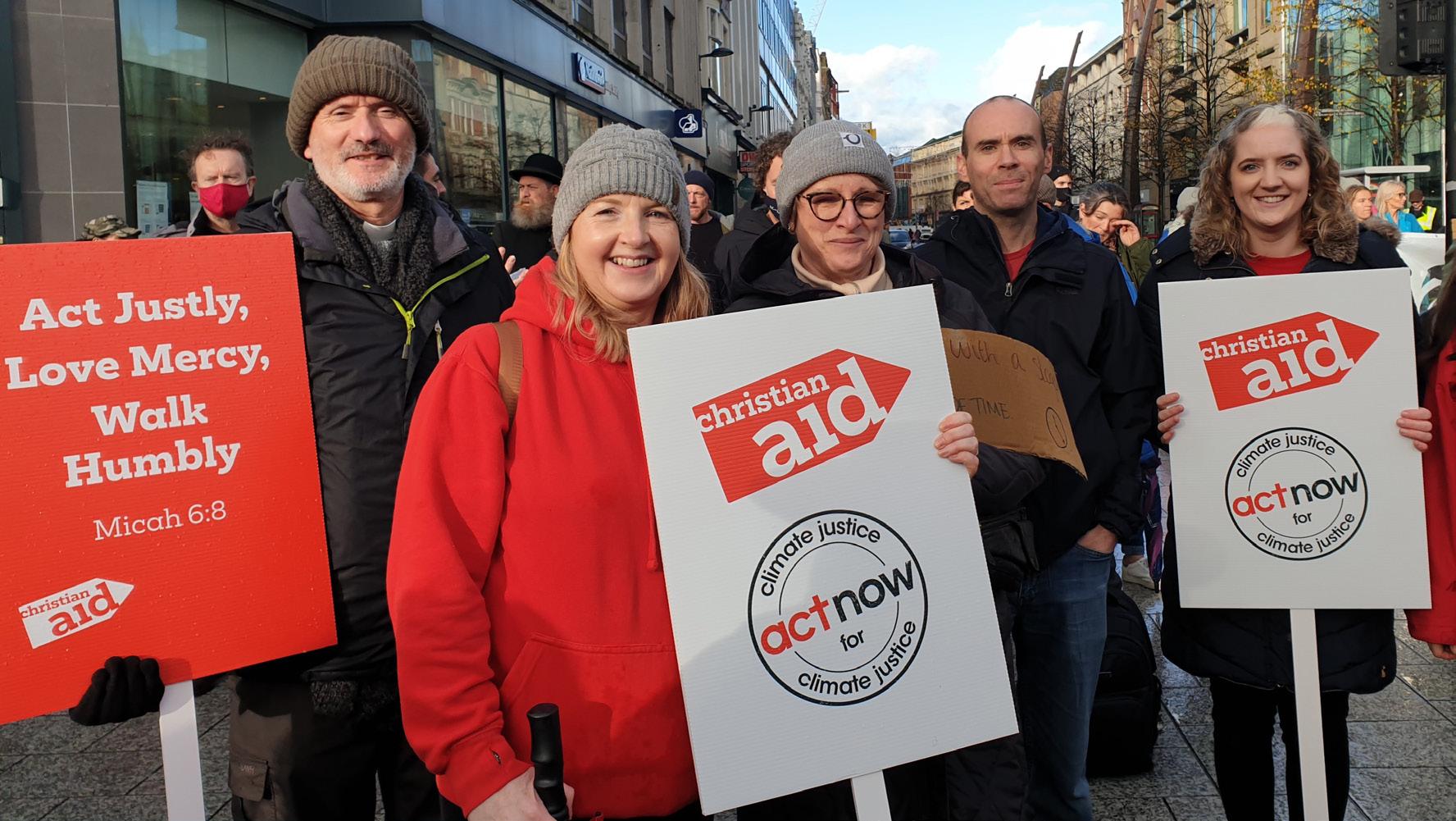
21
We work to challenge systems and structures that make and keep people poor
14. Martin Luther King Jr., Speech at Riverside Church, 1967.
However, we also work to give people living in poverty the tools and opportunities to speak up for themselves and to bring radical reform to oppressive structures and systems of power.
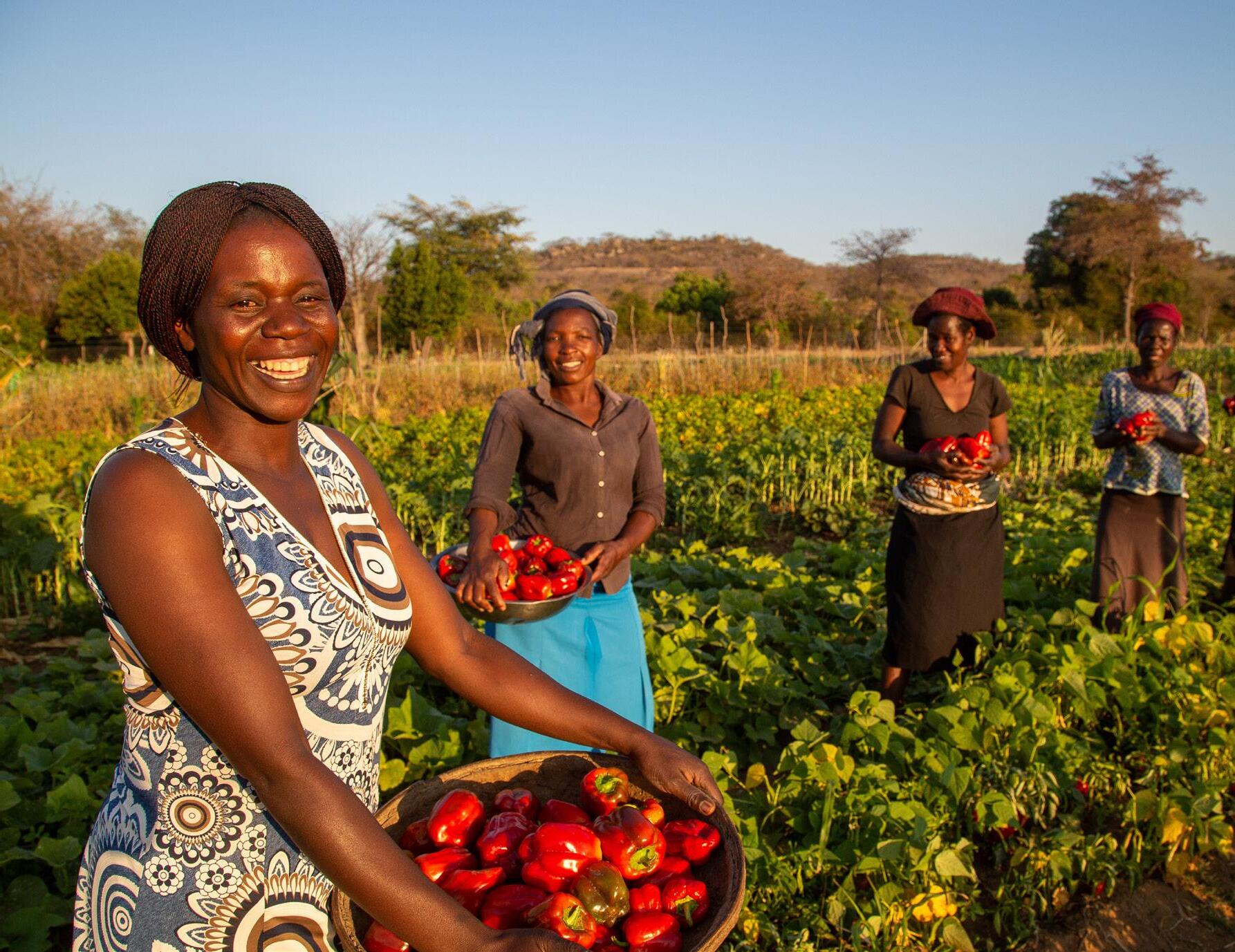
In the Bible, the book of Esther tells how God brought a Jewish woman, Esther, to a position of prominence as Queen to the Persian King Xerxes. This provided her with the opportunity to use her voice to speak up on behalf of her own people who were facing persecution and oppression. She courageously took that opportunity despite the risk involved in speaking out and as a result of her intervention King Xerxes overruled plans to destroy the Jews and instead passed an edict ensuring their protection (Esther 8:11). Inspired by the story of Esther we do not seek to speak in the place of those we work with, but instead to stand alongside them and to amplify their voices, so that their concerns and proposed solutions are heard by people in positions of power.
Ugandan theologian Emmanuel Katongole writes: “The gospel is inevitably political. The decisive question is the kind of politics that the story of God’s love generates.”15 We believe that the biblical witness of God’s character, laws, redeeming work and his coming kingdom should inspire his followers to work towards the dismantling of systems and structures that exacerbate poverty and instead to build a more just and God-oriented society that ensures justice, dignity, equality and rights for each individual human being made in God’s image.
22
15. Emmanuel Katongole, The Gospel as Politics in Africa, Theological Studies, Vol. 77(3), 704-720, 2016, 711.
Misuse of Christian teachings
We recognise that Christian organisations, and particularly those from wealthy Western countries, have not always been positive influences in the way they have interacted with those living in poverty. Christianity has been used to defend colonialism, slavery, environmental exploitation and the oppression of women. There is a need for repentance, to accept and lament the reality of this history and to commit to change. We do this by listening to the voices of theologians, churches and communities from the countries we work in who challenge us to think and act differently. We strive to communicate our work in such a way that we do not stereotype or misrepresent people. As an organisation, we are committed to standing against racism in every aspect of our work in Ireland and overseas. We continue to be on a journey of education, understanding and repentance. We will continue to reflect theologically on our work and our approach in collaboration with our partners, church networks, theologians and the communities in which we work.
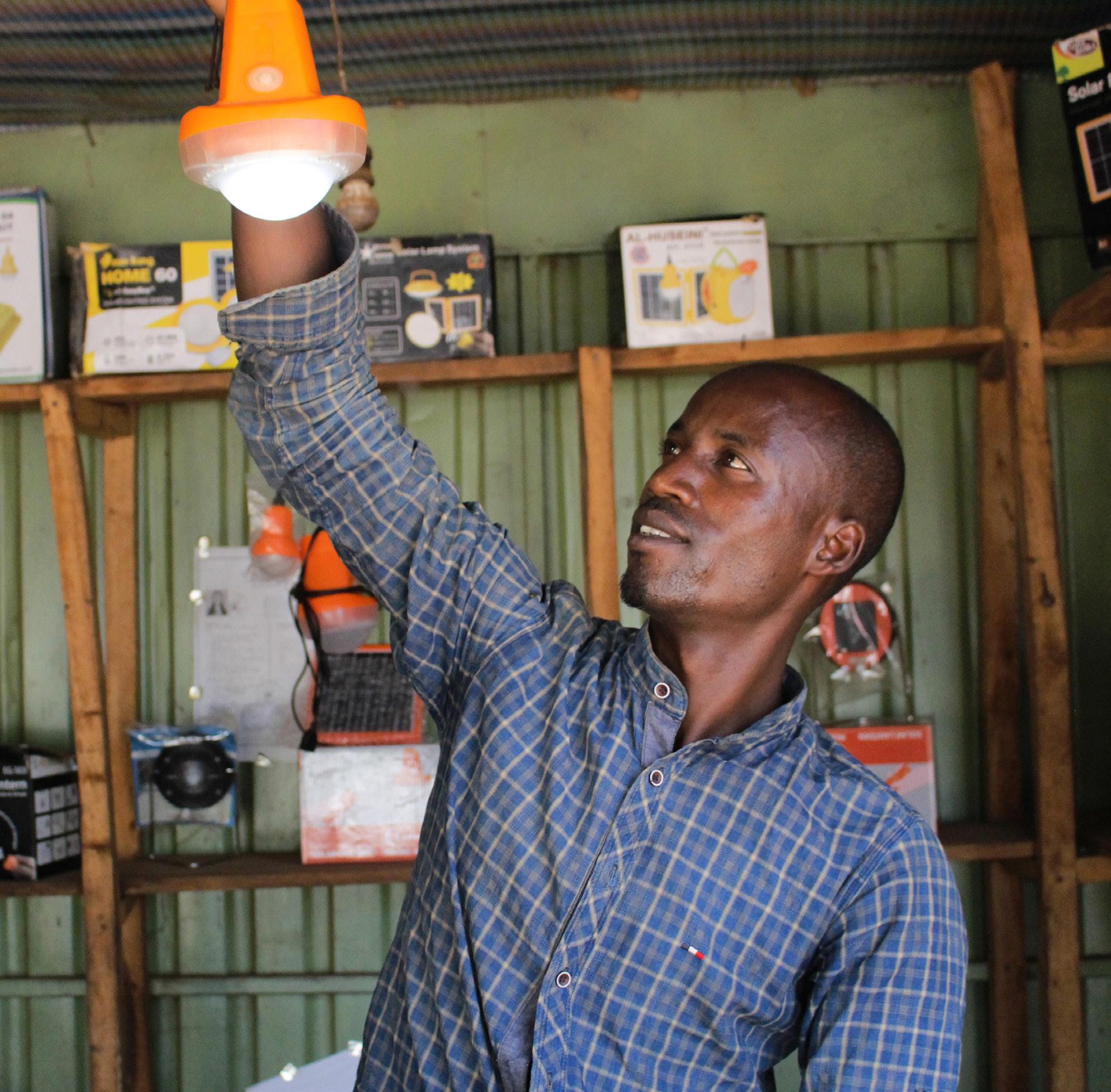
23
Florence Muthiani, from Kenya, and her community built a water dam with the support of Christian Aid’s local partner. With this dam, Florence can grow tomatoes, onions, papayas and chillies on her farm. She has also been able to keep honey bees.
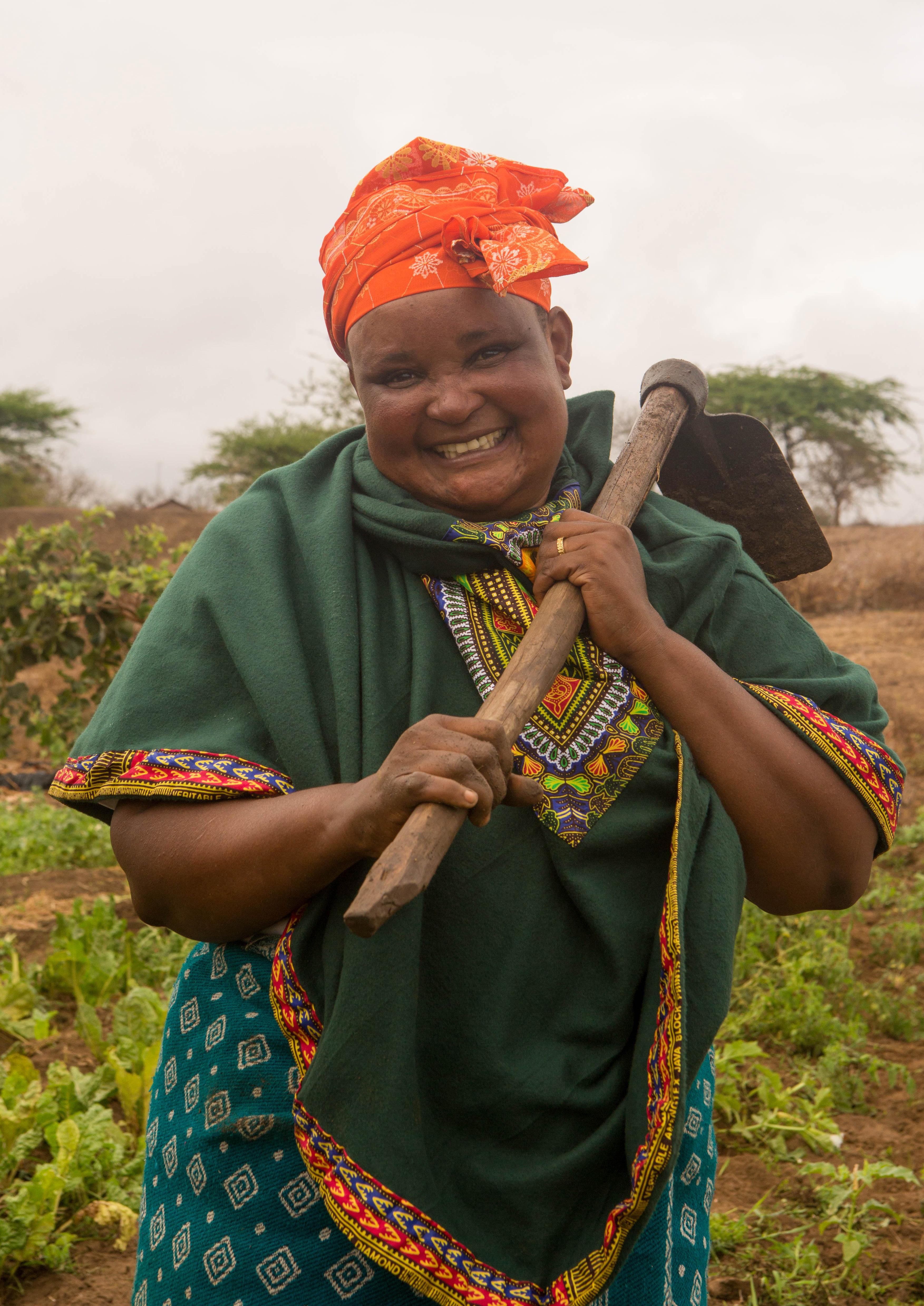
How does our Christian faith influence our values?
Christian Aid Ireland has five core values that inform our work. In turn these values are founded in our Christian faith.

They are: Love, Dignity, Equality, Justice and Integrity. Love
God is love, we are told (1 John 4:8). This God loves with the capacity to transform all we are, individually and as a society. We are called to ‘love one another’, but not in a sentimental way. The call to love is a demand not just to ‘do right by’ others, but to act towards them with a love inspired by wonder. The Christian faith inspires people to sacrificial love of which Jesus provided the ultimate example.
Emmanuel Kataliko, the former Archbishop of Bukavu, in eastern Democratic Republic of Congo, describes the vision of the gospel as “excess of love”.16 Jesus loved people radically, unexpectedly and extravagantly. Inspired by what Jesus did, we act likewise. The logic of the “excess of love” moves us towards working for practical solutions to end poverty.
25
16. Cited in Emmanuel Katongole, Gospel as Politics in Africa, 705.
Dignity
Human dignity is an essential part of every human being and is a quality that can never be separated or lost as it is not earned or merited.
Genesis tells us that all human beings are made in the image of God. “God created humankind in his own image, in the image of God he created them; male and female he created them” (Gen 1:27). This means that each human being, female or male, is imbued with an inherent dignity, which comes from the image of God in which they were made. One element of what being made in the image of God could mean is that we are made to be relational beings. To live in relationship with one another and with our God. The Christian perspective that sees the image of God in every human being should result in a desire to treat everyone with equal dignity.
Michael Amaladoss writes: “God made humans male and female in God’s image. This sets up a basic relationship and reciprocity that governs the whole of life. But, because the humans are made in God’s image, this reciprocity is not automatic but has to be assumed and lived by the humans in freedom.”17

26
17. Michael Amaladoss, Mission in a post-modern world, 73.
Equality
The affirmation that all humans equally carry something of the image of God means that all people are equal in the sight of God and therefore deserve to be fairly treated based on their shared humanity rather than on an assessment of any other aspect of their identity.
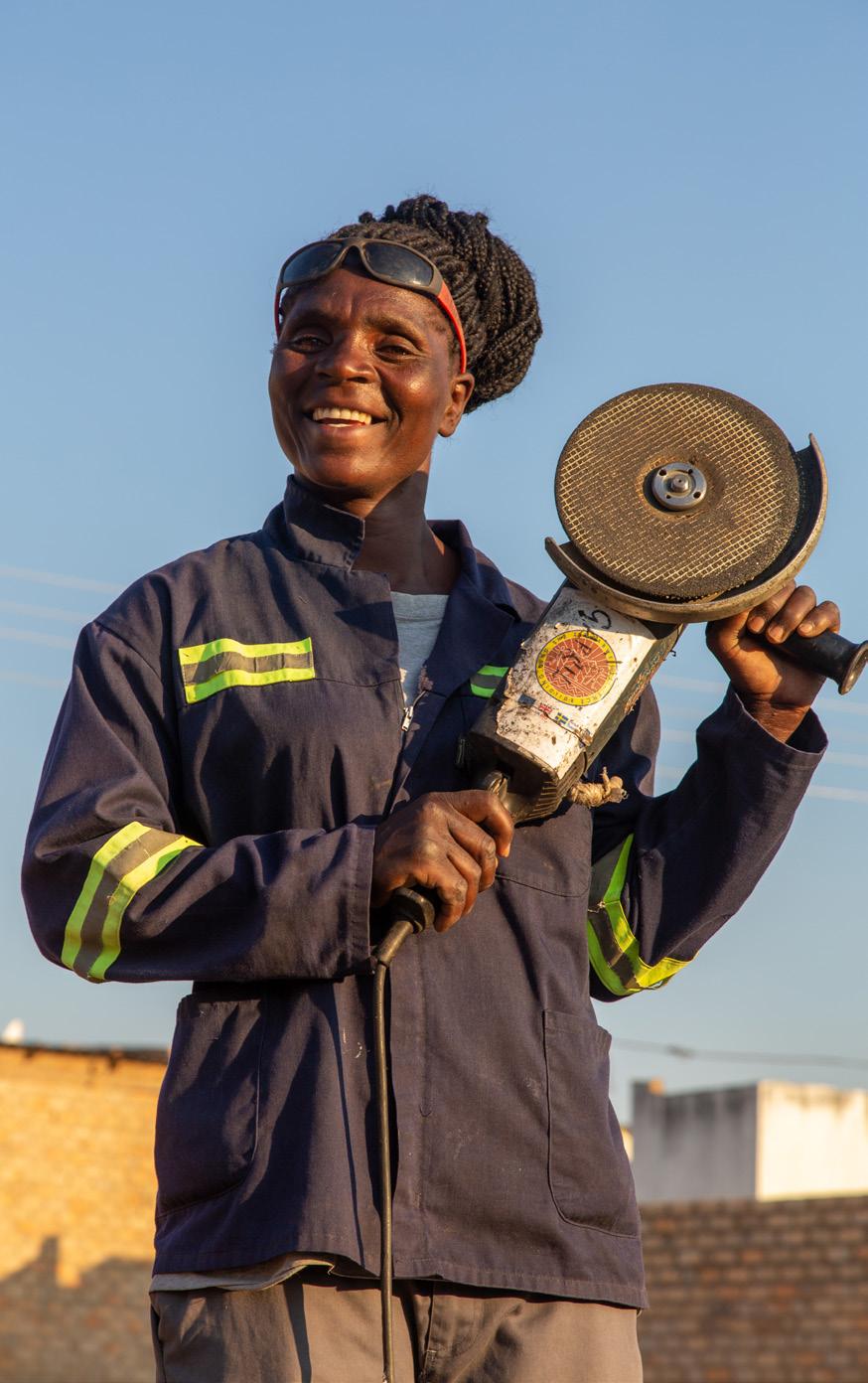
Susan Durber notes: “There were cultures in the ancient world, like the Mesopotamians, the Egyptians and even the Romans, who believe that human beings could be made in the image of God. But, most often they believed that perhaps the King, the Pharoah or the Emperor might have that privilege… To say, so long ago, that male and female were together in the image of God and were blessed by God, was to say something all but unthinkable. It was to say that male and female, though different, have something very profound in common, and that what they have in common, even as they are different, is so good that they can, together, image God.”18
The Bible teaches the fundamental equality of women and men of all racial and ethnic groups, all economic classes and all ages. All are made in the image of God, and Christ came to reconcile us to God and to one another, breaking down the identities which otherwise divide us. As Paul wrote to the Galatians, “There is neither Jew nor Gentile, neither slave nor free, nor is there male and female, for you are all one in Christ Jesus” (Gal 3:28).
Therefore, Christian Aid believes that all human beings, made in the image of God are equal regardless of gender, nationality, language, age, race or sexual orientation. As an organisation supported by a diversity of churches, Christian Aid recognises that those churches have a range of theological positions and biblical interpretations regarding same-sex relationships. Divergent views are held both between and within Christian church denominations. However, we believe that despite holding different views, churches should be united in the belief that all people are equal in God’s sight and therefore deserve to live a life of dignity, free from poverty, discrimination and violence. It is for this reason that Christian Aid works with partner organisations which defend the human rights of LGBTQ+ people.
27
18. Susan Durber, Of the Same Flesh: exploring a theology of gender, Christian Aid report, 2014, 17.
Justice
Seeking to act justly is a critical part of every Christian’s vocational call. It is, according to Micah 6:8, something that ‘the Lord requires of us’ because justice is close to the heart of God.
God says plainly that seeking justice is an essential part of genuine worship. In Isaiah 1, God tells the Israelites that their prayers, sacrifices and festivals are detestable to him. Instead, he tells them to “stop doing wrong; learn to do right. Seek justice, encourage the oppressed, defend the cause of the fatherless, plead the case of the widow” (Isaiah 1:16-17).

28
Integrity
God expects his people to deal honestly with one another. Jesus said “let your ‘Yes’ be ‘Yes’ and your ‘No,’ ‘No.’ For whatever is more than these is from the evil one” (Matt 5:37). Therefore, honesty and transparency is a fundamental principle that we work from.
Humility is another characteristic, which the Bible strongly endorses. For example, Paul wrote to the Philippians, “do nothing out of selfish ambition or vain conceit. Rather in humility value others above yourselves, not looking to your own interests but each of you to the interests of the others” (Phil 2:3-4). Humility for Christian Aid means listening to our partners and those living in poverty who have first-hand experience of the challenges and solutions that work best. We do not seek to impose our own agenda, but to humbly listen to those living in poverty as well as those churches and Christians supporting our work.
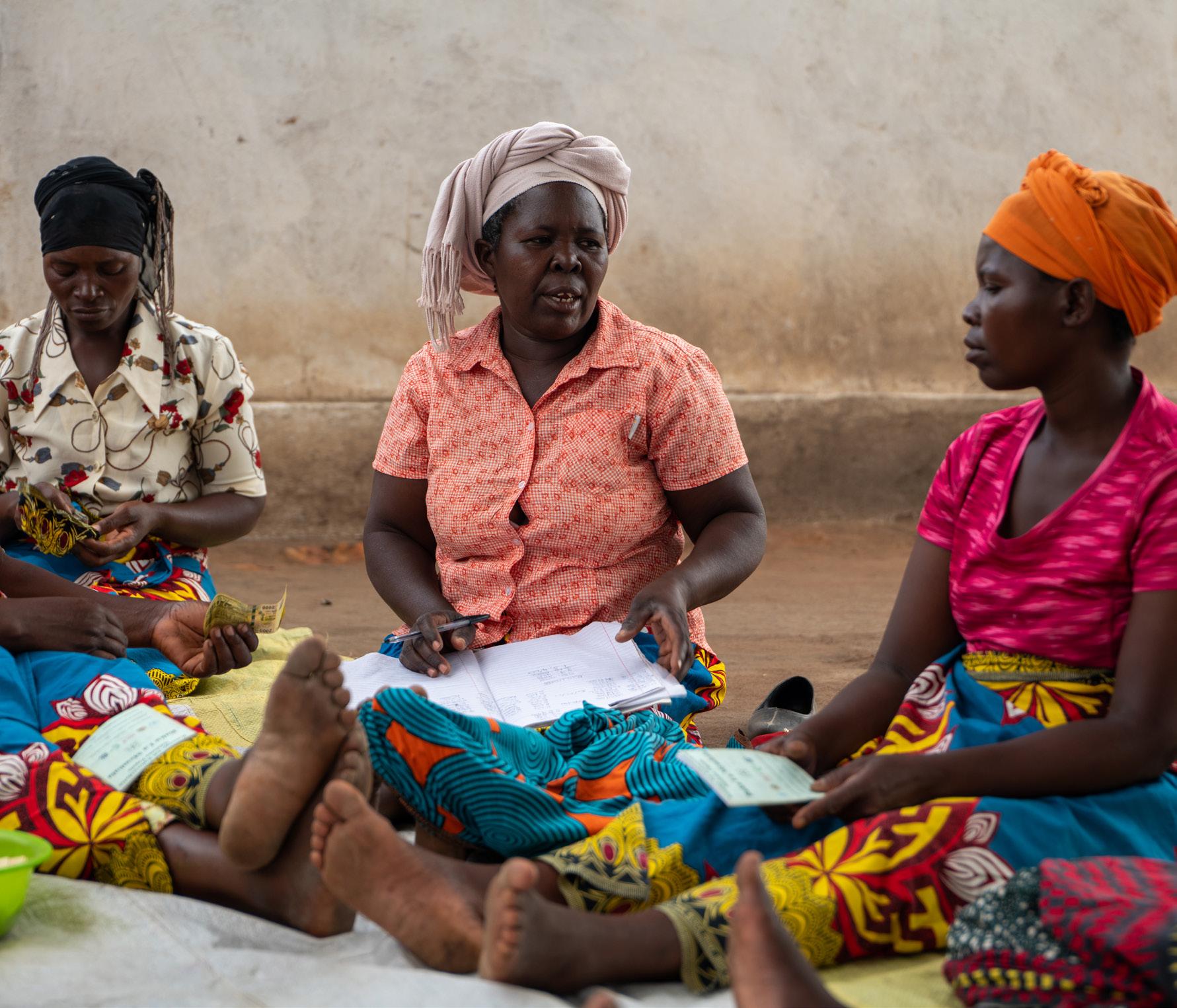
29
Peter and his wife Ziwone Saizi are both carpenters. Through the profits Ziwone’s mother Esther has made harvesting pigeon peas, she has been able to pay for the tools they have needed for the business.
(Christian Aid / Adam Haggerty)
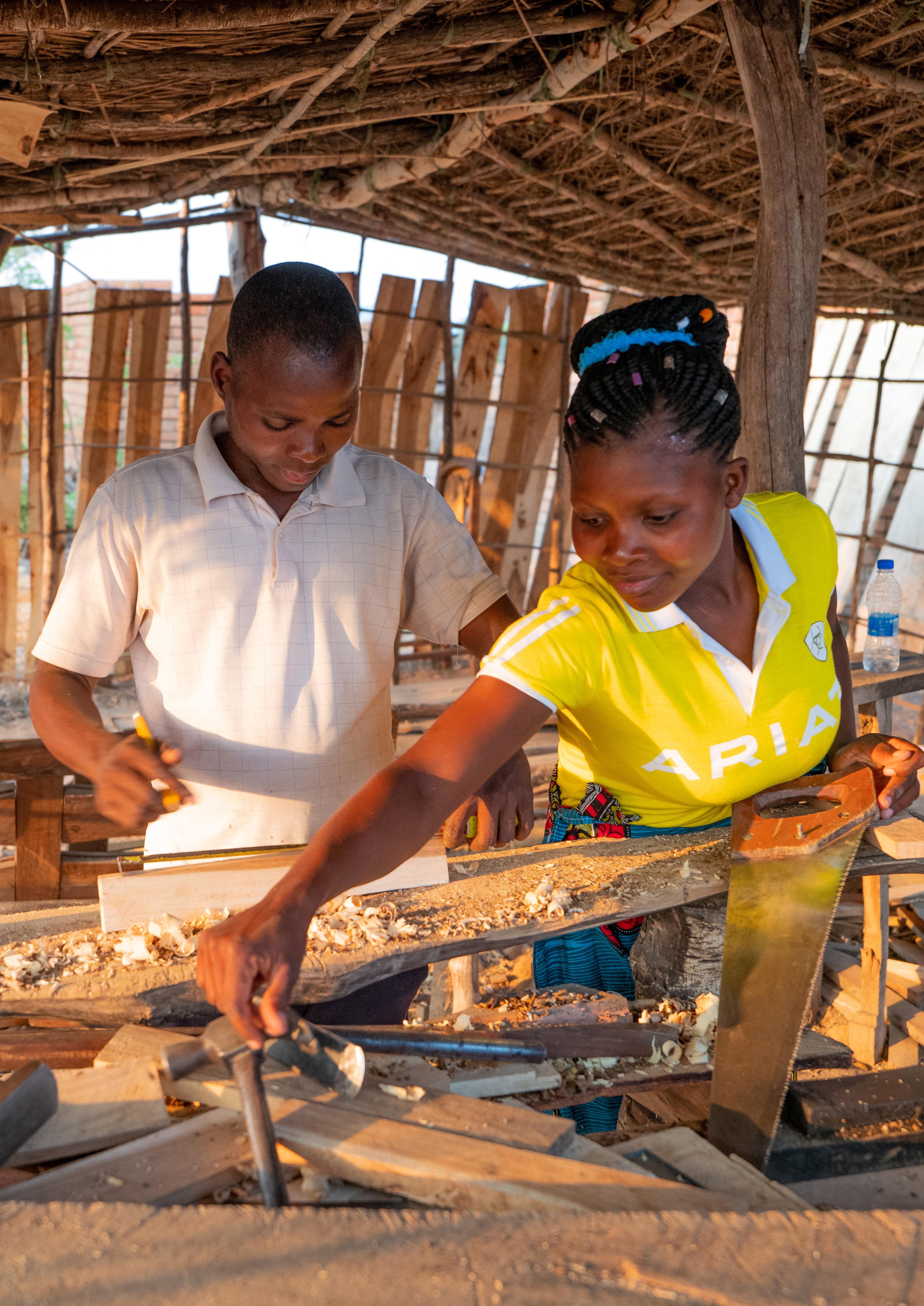
Our Approach
Our work is framed around four core pillars:
Poverty
Poverty is more than the absence of basic needs, it’s also the absence of control, opportunity and the ability to live a full life.
In the Bible there is always an obligation to share with those in need, and to strive for justice. Furthermore, any exploitation of the poor is explicitly forbidden, but instead society must be remodelled to end unjust systems and practices that negatively impact poor and marginalised people.
Power
We tackle the root causes of why people are living a life of poverty, injustice and inequality as well as facing violence and we hold those in power to account.
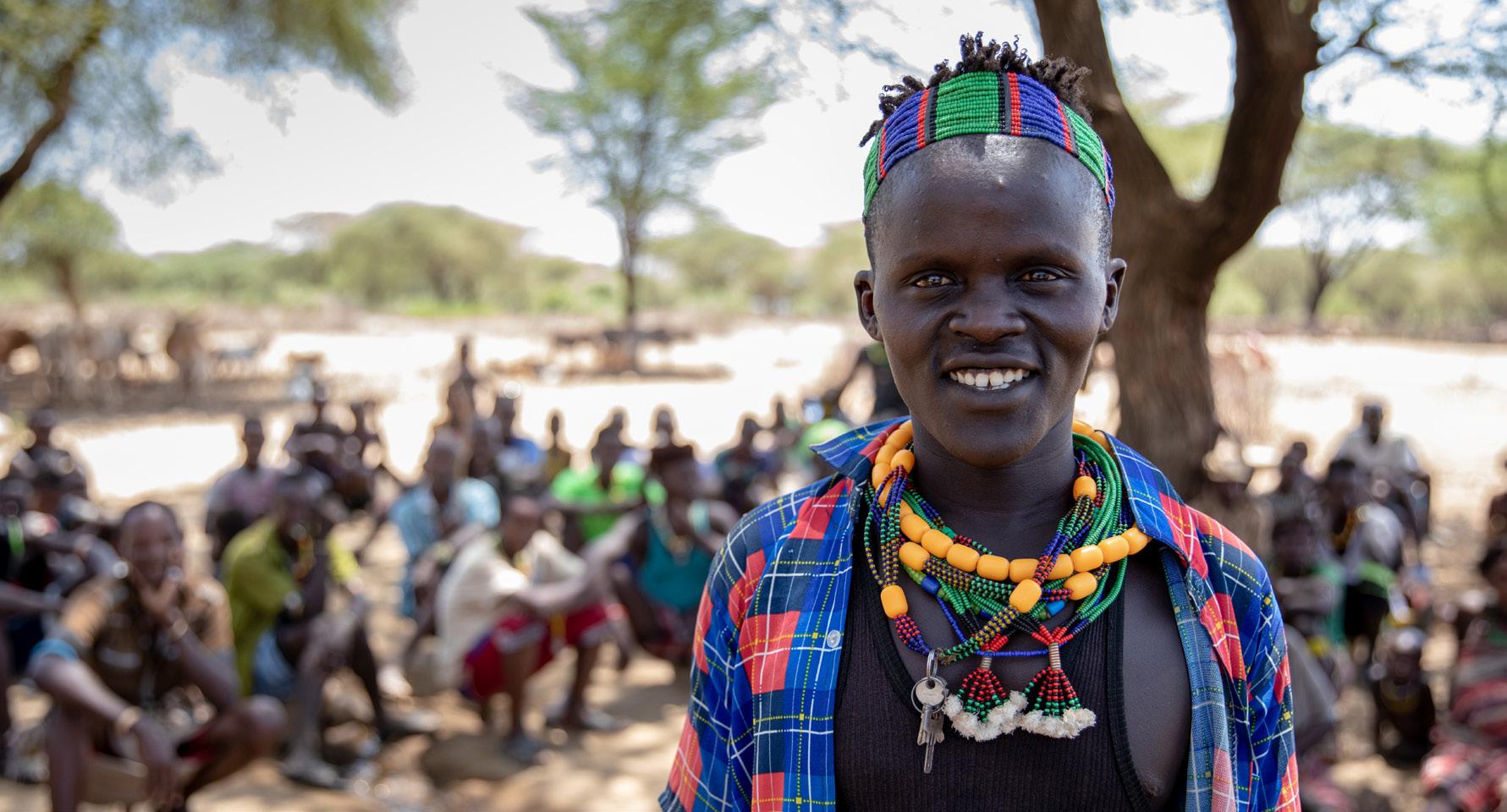
Jesus did not walk this Earth in pursuit of power. Jesus came to serve.
We want to echo Jesus’ approach to power. That means using any power we might have to break down inequalities and imbalances experienced by others. But, also being willing to lay aside any privilege we may have in order to better serve others and help them to realise their rights. This is why we listen to and stand alongside those with lived experience of poverty and injustice. We seek to amplify their voices so that the proposed solutions to the challenges they face come from within their own communities rather than being enforced on them from outside.
31
Prophetic voice
We use our voice and seek to amplify the voices of the people we work with to challenge the systems and structures that keep people poor and oppressed. Prophecy is not an activity confined to individuals. Speaking out to challenge society and its institutions, whether local, national or global, is the calling of Christian churches and of Christian organisations.
As Mario Aguliar notes: “The prophetic call… is a divine demand for a more just and Godoriented society. Such a proclamation may raise political, religious and economic issues which are often rejected by the authorities.”19
A Christian prophetic voice is one that is not afraid to challenge what has gone unchallenged, or to say things which might make people uncomfortable.20
Partnership
We work in partnership internationally with local organisations, churches and communities to listen, learn, share and exchange knowledge and resources.
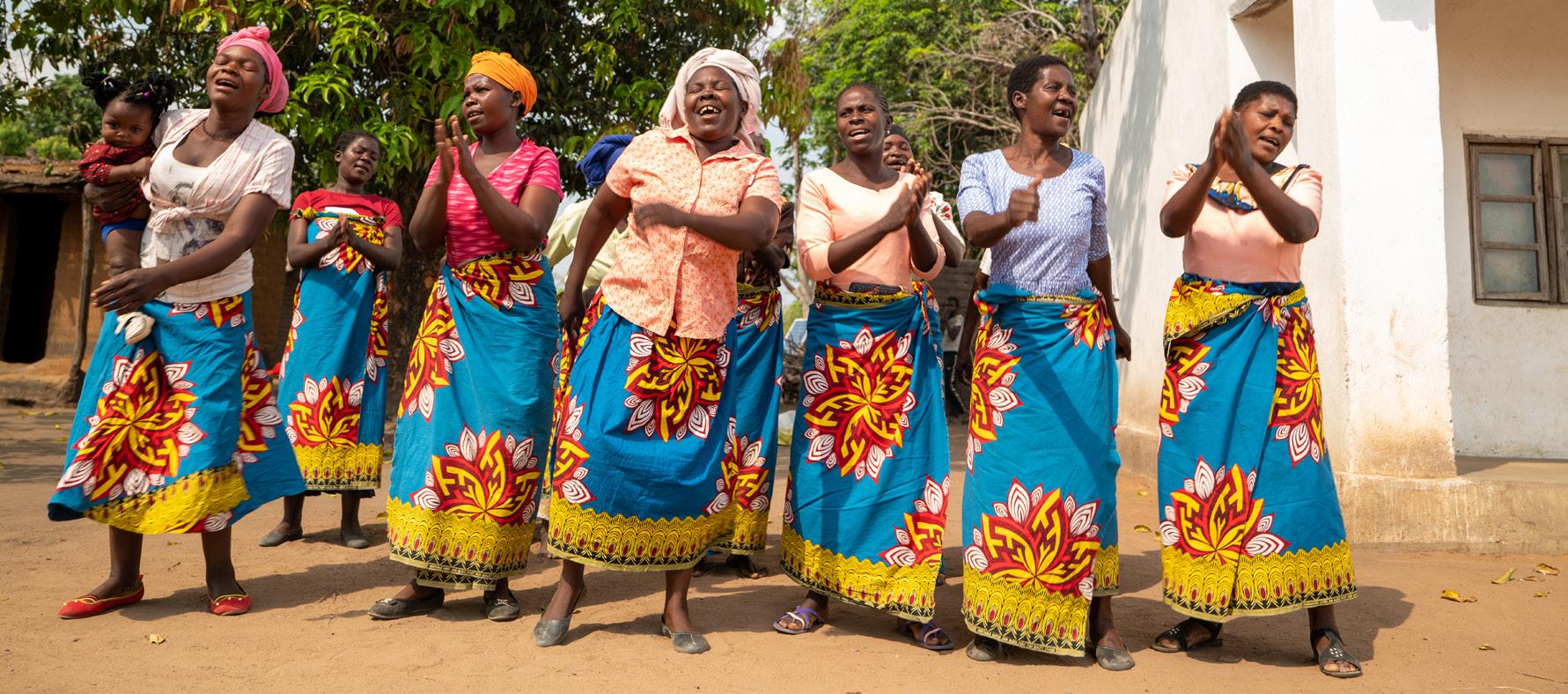
God in his great and generous love wants us to work together with others of goodwill to build the common good.
We believe our work is more effective when we are open to learning from other interested parties and those with lived experience of poverty and injustice and when we work in cooperation with other agencies, whether these involve Christian communities and organisations, secular groups or other faith-based communities.21 We are committed to building a movement of people and organisations seeking to tackle the root causes of poverty globally.
32
19. Mario Aguilar, Genuine Concern for the Poor, 5.
20. Paula Clifford, International Development and Theology, 23.
21. Paula Clifford, International development and Theology, 25.
United in Hope

Our Christian faith gives us the hope that a better world is possible. Therefore, we are committed to work towards the vision of restored relationships which is expressed in the book of Revelation as “a new earth” where “mourning and crying and pain will be no more” (Rev 21:1-4).
Our Christian faith fuels our hope and unites us with a global movement of people working towards a better world. With this in mind, we dedicate ourselves to pursuing a world where resources are shared fairly; where our climate and environment are protected; where peace is sustained; where when disaster strikes no one is left behind; where vibrant people-led movements shape the world around them; where human rights are defended; and where gender equality is achieved. We believe not only that this world is possible, but that it is God’s desire and intention for our future. This fills us with hope and motivates us to give, act and pray with expectation that God will use our actions to bring about his good purposes on Earth.
33
Join us
Will you join us in praying fervently, giving generously and acting courageously for a world where God’s justice rolls down like a river?
We would love to partner with you and your church as together we journey towards the world we want to see.
There are many ways to get involved, you can:
• Pray with us
• Invite a Christian Aid speaker to your church or group
• Sign up to receive our magazine or email communications
• Become a Church Representative and encourage others to get involved
• Become a regular giver to help us respond immediately when emergency strikes
Find out more and get involved via our website: caid.ie/whyCAI

Or by phoning our offices:
Belfast (028) 9064 8133 Dublin (01) 960 7040
Keep in touch:
christianaid.ie
@christianaidireland @christianaidirl @christianaidirl





 Joseph
Joseph


 (Christian Aid / Adam Haggerty)
(Christian Aid / Adam Haggerty)




 Kokoli Aulia, from Bangladesh, received training in crab farming from Christian Aid’s local partner. She now runs her own crab farm with her husband.
(Christian Aid / Adam Haggerty)
Kokoli Aulia, from Bangladesh, received training in crab farming from Christian Aid’s local partner. She now runs her own crab farm with her husband.
(Christian Aid / Adam Haggerty)













